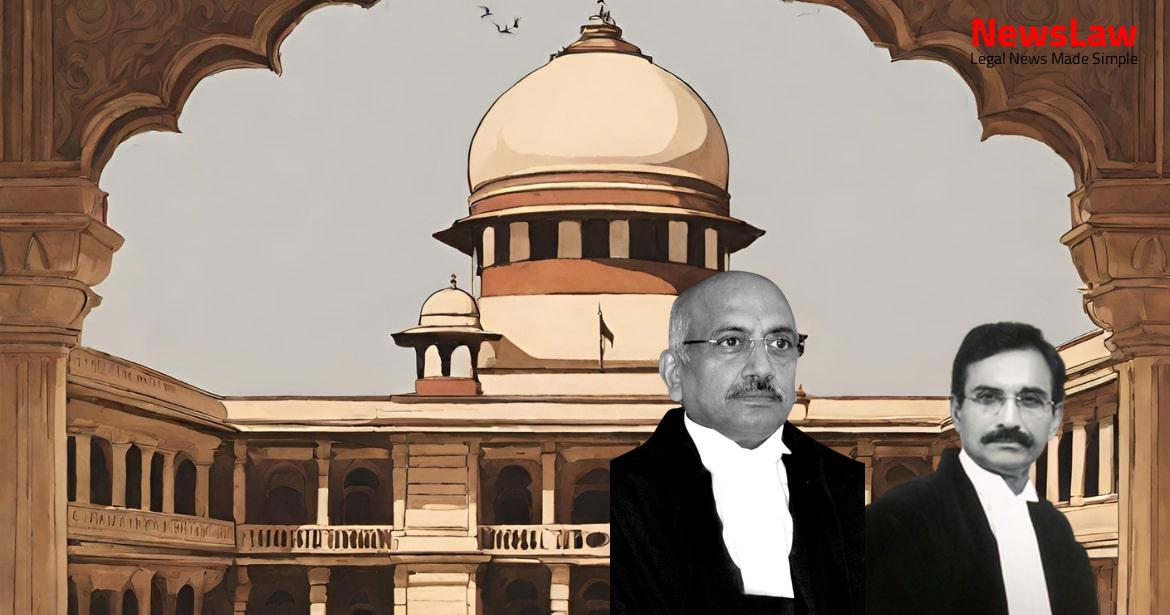In a significant judgment, the Supreme Court of India has rendered a verdict on the Guidelines for Oil Company Operations, impacting the termination of a dealership. This ruling carries implications for the control and regulation of the supply chain of High Speed Diesel and Motor Spirit. The decision clarifies key aspects of the case and reaffirms the importance of adhering to industry guidelines and regulations.
Facts
- Field Survey Officer retained a sample which showed deviation in stock variation and non-availability of reference density.
- Dealer’s explanation included the dispensing unit not working properly leading to wrong readings.
- Retesting of the samples was requested by the dealer due to the faulty equipment.
- Dealer’s request for retest was accepted later on.
- Dealership was terminated based on test reports showing non-conformity with specifications.
- The learned Single Judge allowed the writ petition on 13 October, 2015, stating that the samples did not reach the Laboratory within the required ten days as per the Guidelines.
- It was observed that non-compliance of the time line fixed was a key issue in this case.
- Stock variation was deemed not a critical irregularity under Clause 8.2 of the Guidelines, and could not lead to the termination of the dealership.
- The Division Bench of the High Court, in appeal, upheld the findings of the learned Single Bench citing judgments in similar cases.
Also Read: Inheritance Dispute: Validity of Alleged Marriage between Sujathamma and Hanumanthappa
Arguments
- The argument raised by the appellants is that the Guidelines do not require strict adherence as held by the High Court.
- Reference is made to specific clauses such as Note 2 of Clause 2.4.4, Sub-Clauses A and I of Clause 2.5, Clause 8.2 classifying critical irregularities, Clause 8.3 classifying major irregularities, and Clause 5.1.1 defining adulteration.
- It is pointed out that any positive stock variation beyond the permissible limit leads to critical irregularity according to Clause 5.1.11.
- The termination of dealership is argued to be illegal as the samples were not taken in the manner prescribed under the Code of Criminal Procedure, which requires the presence of two independent witnesses.
- The authenticity of the sample taking process is questioned, especially due to the finding of sludge in the umpire sample.
- Mr. Goswami, counsel for the dealer, contests the findings by questioning how only the dealer’s sample was found to contain sludge when all samples were drawn simultaneously.
- It is highlighted that the Motor Spirit and High-Speed Diesel Order, 2005 issued by the Government of India is applicable as per Clause 1.5 (v) of the Guidelines.
- The time limit in the Guidelines is considered mandatory by the High Court.
- The delay in sending samples for testing can lead to termination of dealership, which is a serious consequence affecting the rights of a dealership.
- The appellants cannot benefit from the delay in sending samples for testing.
- The High Court’s findings serve the larger public interest.
Also Read: Seniority Determination in Uttarakhand Pey Jal Nigam: Regulation 23 vs Government Order
Analysis
- The appellant rightfully terminated the dealership for adulteration of High Speed Diesel.
- The time frame mentioned in the Guidelines is preferred but not mandatory, allowing flexibility.
- The dealer is not being prosecuted for violating the Guidelines, so the standard procedure for sampling and prosecution does not apply.
- The delay in sending the sample for testing was not objected to by the dealer in their responses.
- Concerns about the umpire sample and doubt on other samples due to sludge are baseless conjectures.
- Confiscation of essential commodities and criminal prosecution are consequences of violating the Control Order under Sections 6A and 7 of the Act.
- The language of the Guidelines indicates the time frame as ‘preferably within ten days’, suggesting a flexible timeline.
- The Control Order mandates punishment by court for contravening orders under Section 3 of the Act.
- Adulteration of High Speed Diesel is a critical irregularity warranting termination of the dealership.
- The Guidelines aim to streamline oil company operations and ensure justified testing.
- The report dated 19 August, 2013 also showed deficiencies in various quality parameters.
- Suitably coding and timely testing of samples are emphasized in the Guidelines to maintain integrity.
- The Control Order is issued to regulate supply, distribution, and prevent malpractices in High Speed Diesel and Motor Spirit.
- The dealer’s agreement dates back to 20 December, 1995, under the Act controlling commodity production and trade.
- The Guidelines guide oil companies to send samples for testing based on justified reasons.
- The Guidelines prioritize streamlining oil company functions and prevent arbitrary decisions.
- The stock variation was beyond permissible limits, leading to a critical irregularity under Clause 5.1.11 of the Guidelines.
- The action taken was justified under sub-clause (i) of Clause 8.2 and sub-clause (iv) of Clause 8.3 of the Guidelines.
- Comparison to previous judgments where violation of natural justice occurred due to lack of notice served to the dealer.
- In the present case, the dealer was informed after the first sample failure and given an opportunity for re-testing.
- The dealer received a show cause notice before facing termination, aligning with contractual obligations.
- The High Court’s order was deemed illegal and unsound, thus set aside.
Also Read: The Case of Circumstantial Evidence: Conviction Upheld by Supreme Court of India
Decision
- Judgement allows the Civil Appeal.
- The writ petition is dismissed.
- The termination of dealership is held to be valid and legal.
Case Title: INDIAN OIL CORPORATION Vs. M/S. R.M. SERVICE CENTRE
Case Number: C.A. No.-008257-008257 / 2019



